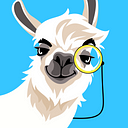Understanding Digital Assets and User Identity in Upland
Here at Upland, we’re on non-stop mission to bring the benefits of blockchain technology to the masses through casual games, and we want to be the first blockchain game to bridge the huge gaps that stand in the way of mass adoption.
We’ve invested incredible efforts in shaping up a holistic solution that hides complex technology behind managing blockchain identities, and at the same time makes sure the business model for the game will be sustainable in support of mass audiences. Here’s a quick look at some of the core components that comprise this solution.
Upland’s Integrated Wallet
Upland uses the EOS mainnet to register and store the game’s assets, such as property NFTs (non-fungible tokens) which mirror real-world addresses and geo-boundaries, and UPX, which is a fungible token and Upland’s virtual currency.
The problem is, for the average Joe who wants to start building his digital property empire, installing a blockchain wallet and funding an EOS account is a big ask. But we are not ready to give up on the moguls just yet...
We’ve developed a proprietary wallet that is integrated into the Upland game client, which not only securely handles account private keys, but also handles account creation and transaction signing. And the coolest thing — Upland never has access to any of the player’s private keys, and Upland can never sign transactions on behalf of the player!
As a final perk, because Upland’s EOS accounts are dedicated to holding Upland assets, Upland is also responsible for staking all resources for operating these accounts — one less thing to worry about for Mr. Joe Mogul.
You may be wondering: how does everyone get an account ‘on the house’? Where is all this generosity coming from? What about all those players who just check out the game and never come back? Well, luckily we’ve figured it out too!
Upland’s Unique Freemium Model
Freemium models have become a standard in today’s casual games, and it makes perfect sense. Most players want to get a feel of the game before committing in terms of putting in their hard-earned money. Others don’t want to, or can’t afford to, but still, want to be able to work hard in order to progress in a game.
But when creating a real economy like in Upland, where every virtual coin and digital asset is accounted for and holds value, how can you get your newbie players started out loaded with bonuses, and on top of that, fund their EOS accounts?
The answer lies in the distinction we make between so-called ‘Visitors’ to Upland, and true Uplanders. Visitors can play the game just like any other player, with a small but critical distinction — they don’t truly own the assets that they accumulate in the early stages. What happens is that they play the game under EOS accounts that are controlled by Upland, and if they don’t stamp their Visitor visas once a week (clever metaphor, ha?), Upland will recycle their assets (i.e. accumulated UPX and minted properties) to be put back for the community’s future use. Visitors are also not allowed to conduct free trade with other players.
Once Visitors graduate to become Uplanders, they get their own dedicated EOS account, (and at the same time Upland loses the ability to access their assets) and are free to trade with other Uplanders or keep their assets forever.
So how do Visitors become Uplanders? Easy — keep playing! Once Visitors accumulate an asset portfolio of modest UPX worth, they automatically graduate to become Uplanders, induction ceremony included!
(Note: In the closed beta phase, all testers who purchase a property automatically become Uplanders)
And once you’re an Uplander, you’re an Uplander for life, with your digital assets immortalized on the blockchain. The Ownership Revolution is coming…
By Idan Zuckerman, Co-founder of Upland

